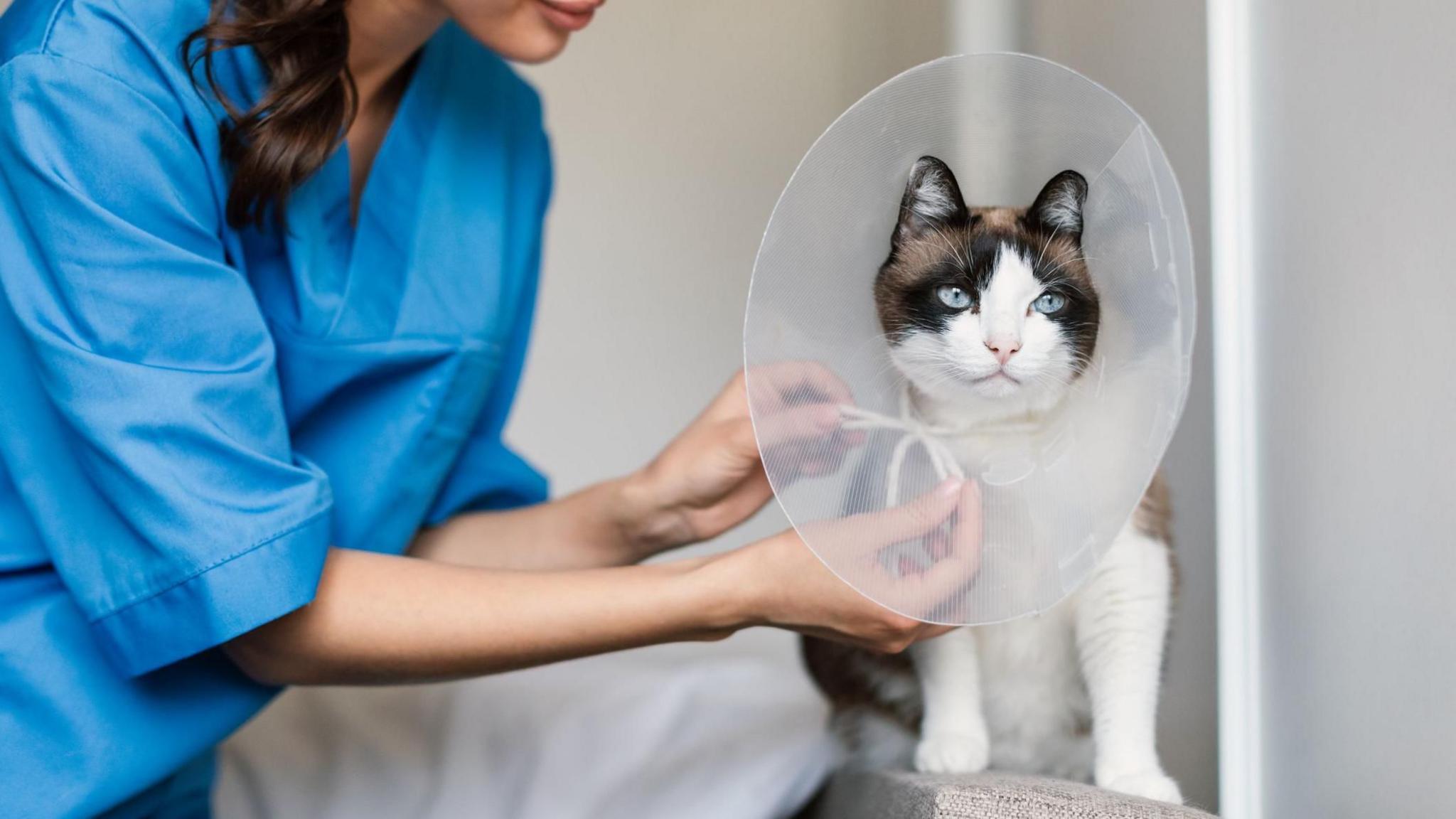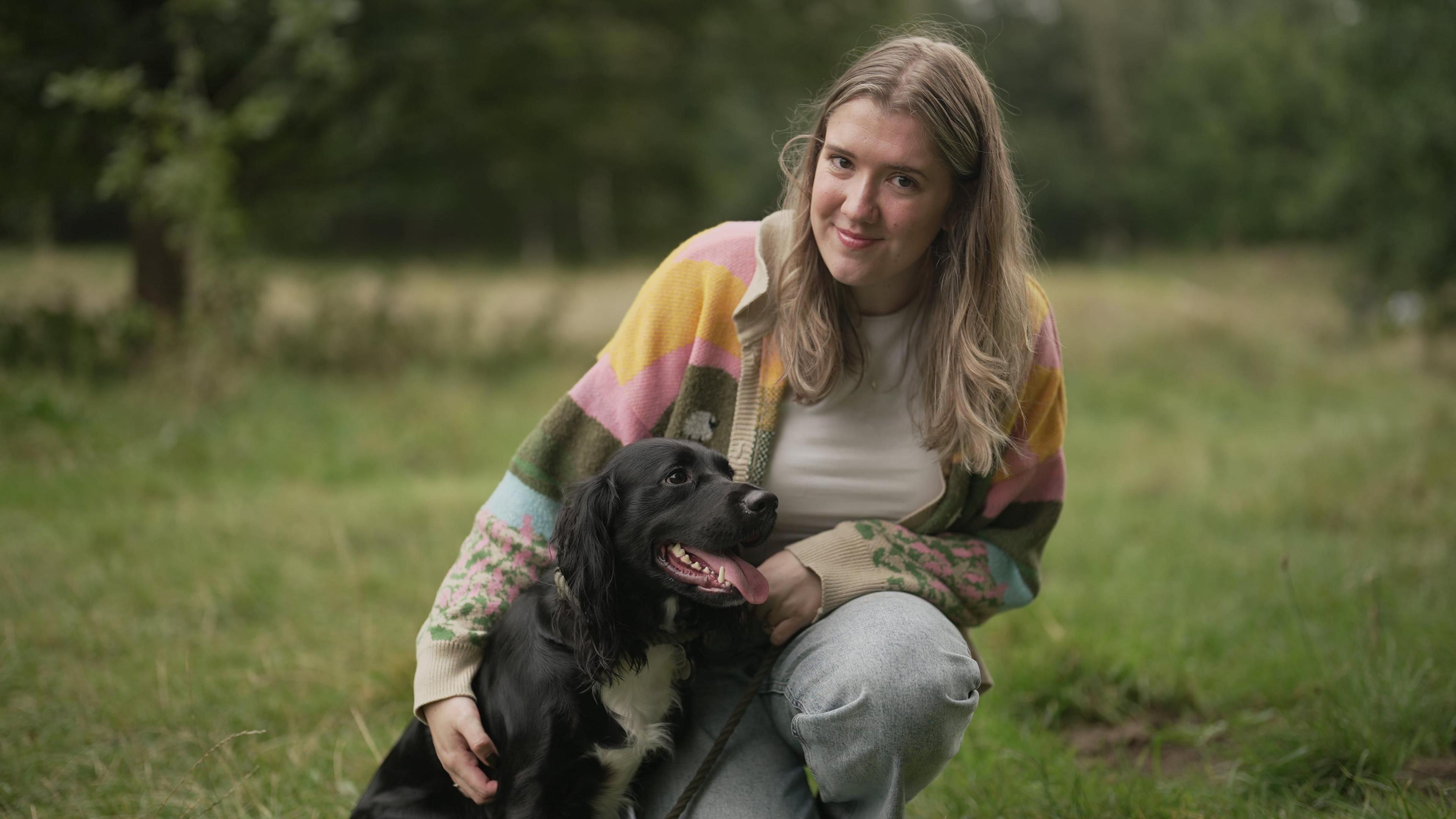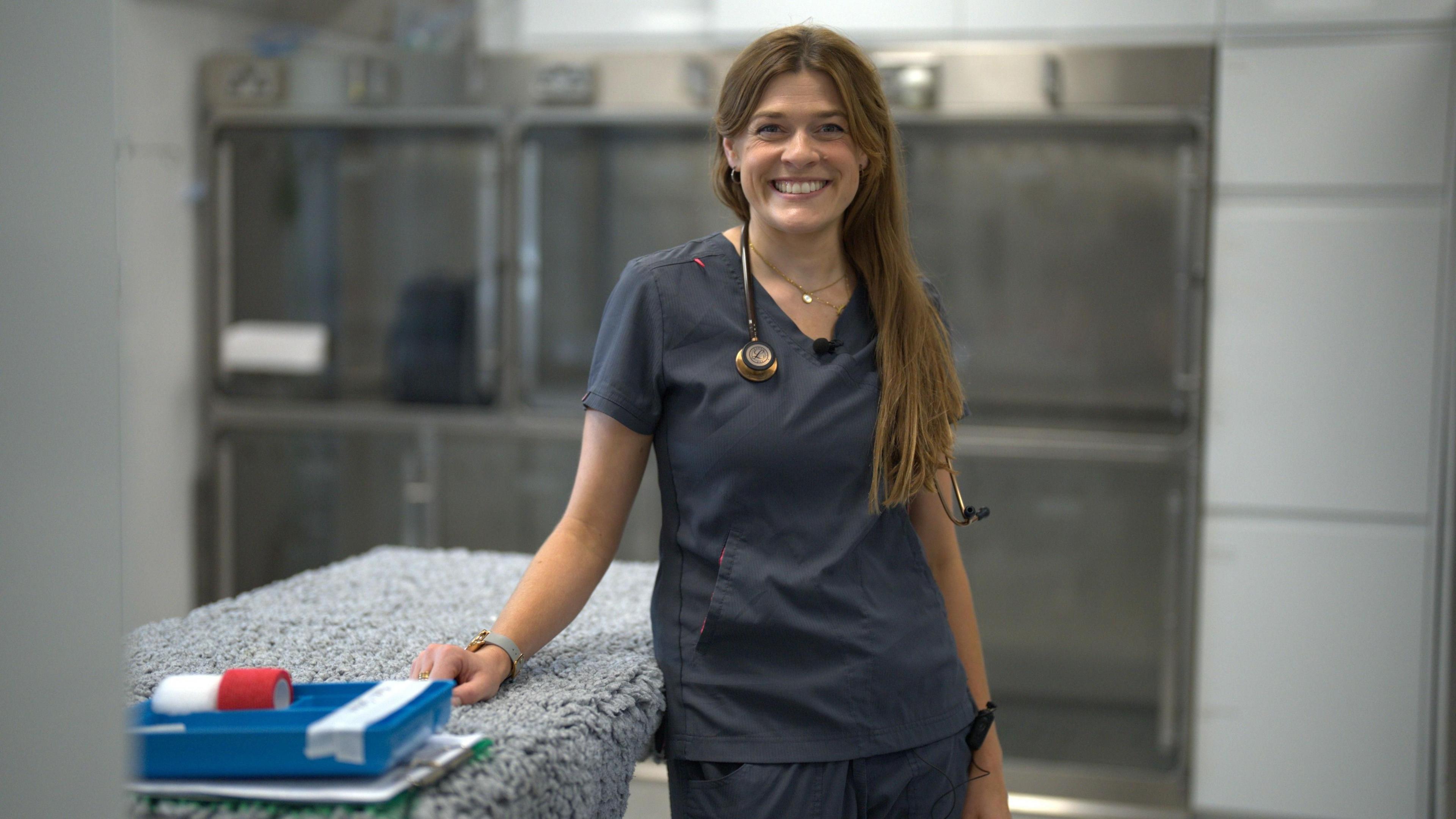Vets should be made to publish prices, watchdog says

- Published
Vets should be forced to publish price lists so pet owners can see costs up front and shop around for the best deal, the competition watchdog has said.
Owners are often unaware of prices or not given estimates for treatments that can run into thousands of pounds, its investigation into soaring vet costs found.
Vet prices have risen at nearly twice the rate of inflation, the Competition and Markets Authority (CMA) also found.
The CMA's proposals included making vets reveal if they are part of a large group, capping prescription fees and banning bonuses on offering specific treatments.
There are no standardised prices for treatments, and the initial CMA investigation found 84% of vet practice websites had no pricing information at all.
It comes after a BBC File on Four investigation in April found vet bills had skyrocketed, and heard from whistleblowers inside the industry who blamed higher bills on big companies buying up practices.
Hundreds of pet owners contacted Your Voice, Your BBC News, with concerns over vet bills.
Vets and animal charities told the BBC in June pet owners are increasingly having their sick animals put down or they are delaying taking them for treatment to avoid spiralling vet bills.
Price ranges for common treatments, published by the CMA earlier this year, external, include:
Vaccinations: £50 to £200
Neutering (dogs): £120 to £700
Neutering (cats): £50 to £300
Emergency out-of-hours care: £200 to £300
But the CMA noted in that report that prices vary significantly between vets, and they were only able to use publicly available information.
'£12,000 in vet bills'

Nicole put her wedding plans on hold after paying £12,000 for Ernie's vet bills
Nicole Hawley, 26, got in touch via Your Voice, Your BBC News after receiving an unexpected £12,000 bill to treat her dog Ernie, after he inhaled a grass seed while out on a walk and it became infected.
"We were given two choices by the emergency vet, either put him down or pay an extortionate bill for surgery," she told the BBC.
Ms Hawley was in the process of finding a different pet insurance provider for Ernie when he fell ill, meaning she didn't have financial support.
She and her partner ended up taking out a loan to pay for the procedure, and used money they had been saving for their wedding.
"We didn't have the money. But it took us five minutes to decide that we would find it from somewhere," Ms Hawley said.
Many vets offer a monthly subscription which covers check-ups, vaccinations and regular flea and worm treatments for dogs and cats but the price and services included vary between practices.
What’s Happening to Your Vet Bills?
File on 4 Investigates looks at how the corporatisation of the vet industry has led to price hikes of more than 60% in the last 10 years.
Veterinary prices had increased by 63% over a seven year period, which was nearly twice the rate of inflation, the CMA's Martin Coleman, told BBC Radio 4's Today programme.
"Many people were paying twice what they needed to for vet medicines," he said, adding people were often not being given up-front information, "and we're not often given estimates of the likely price of treatment costing hundreds, even thousands of pounds."
"It's not right to keep pet owners in the dark about key matters that affect them and their pets and their pockets," he said.
The CMA also found practices owned by large vet groups charge 16.6% more on average than independent vets.
Mr Coleman said the regulatory system was set up in 1966, "when the world of veterinary services was very different to the world that we have today."
"There is regulation of individual vets, but there is no regulation of the businesses that own the majority of the practices in the country," Mr Coleman said.
The British Veterinary Association welcomed the recommendations for greater transparency and reform of the regulatory system, but president Dr Rob Williams said the association did have some concerns.
"In particular, we need clarity on the proposed introduction of comprehensive price lists, because how vet care is delivered is varied and complex and unless the CMA gets this right, it could end up creating greater confusion for consumers," he said.
The RSPCA said publishing prices would help owners make more informed decisions.
Caroline Allen, the RSPCA's Chief Veterinary Officer said: "Our frontline officers sadly see first-hand the consequences when people delay or avoid seeking professional help, or even attempt to treat conditions themselves.
"Vets are under pressure, and have a key role to play on the frontline of animal welfare - but it's important people trust the industry."

Francesca Verney says vets struggle to talk about money
Francesca Verney, Veterinary Director at independent practice Pet People, contacted the BBC after a previous report on the price of vet bills.
"It's frustrating to be thought of as us having the wrong motivations, being driven by money," she told the BBC.
"If we're going to do a CT scan on a dog, that machine has cost me a quarter of a million pounds, plus the staff to run it safely. It's a big deal. We also have to anaesthetise animals for procedures that we would ask humans to lie still for."
The CMA's recommendations include:
Making it easier for pet owners to access cheaper medicines online, including by requiring vets to tell pet owners about savings they make by buying medicines online
Where a medicine is likely to be needed frequently, automatically providing a written prescription to enable the pet owner to purchase the medicine elsewhere
Capping the price of providing prescriptions at £16
Requiring vets to give pet owners clear price information when they are choosing a treatment, with prices in writing for treatments over £500 and itemised bills
Making the Royal College of Veterinary Surgeons to improve its 'Find a Vet' website to include pricing data
Making vets give clear price information to pet owners arranging a cremation and pet care plans
Wednesday's findings into the £6.3bn sector are provisional, with interested parties now having until next month to make submissions before a final decision is published next year.
After the decision, changes will be implemented through a legally binding CMA order, which is expected to come before the end of 2026. Smaller vet businesses given additional time to implement it.
Get in touch
Your Voice, Your BBC News: What story do you want BBC News to cover?